Address
304 North Cardinal
St. Dorchester Center, MA 02124
Work Hours
Monday to Friday: 7AM - 7PM
Weekend: 10AM - 5PM
Address
304 North Cardinal
St. Dorchester Center, MA 02124
Work Hours
Monday to Friday: 7AM - 7PM
Weekend: 10AM - 5PM
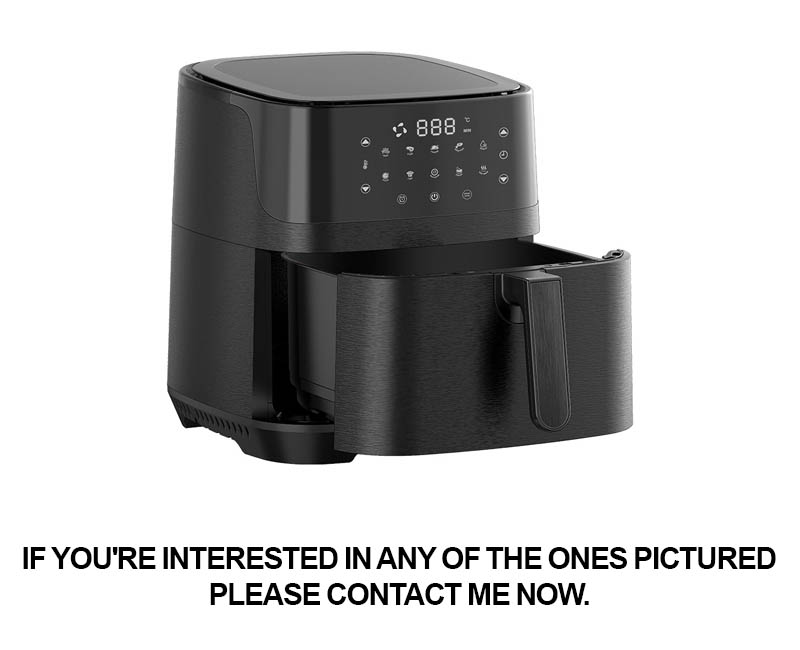
In a world increasingly focused on health and sustainability, the demand for eco-friendly cooking solutions has surged. As businesses look to enhance their operations with cutting-edge technology, one standout innovation stands out: the NSF certified commercial air fryer plant. This article delves into the financial benefits, the impact on health and sustainability, market trends, and practical tips for selecting the right air fryer plant for your business.
In recent years, the culinary landscape has witnessed a remarkable transformation with the rise of commercial air fryers. These innovative appliances have become a game-changer in the kitchen, revolutionizing the way chefs and foodservice operators prepare meals. The convenience, health benefits, and versatility of air fryers have propelled them to the forefront of kitchen technology.
Once reserved for home use, commercial air fryers have now found their way into restaurants, hotels, and even hospitals. Their ability to cook a variety of dishes with minimal oil has made them a favorite among health-conscious consumers and those looking to reduce their carbon footprint. The technology behind these fryers uses hot air to circulate around the food, creating a crispy outer layer while retaining the moisture and nutrients within.
The convenience factor is undeniable. Traditional deep fryers require a significant amount of oil and time to preheat, not to mention the cleanup afterward. In contrast, commercial air fryers operate at a much lower temperature and use a fraction of the oil, making them a more efficient and eco-friendly choice. Chefs can now prepare a wider range of dishes, from crispy fries and chicken wings to even desserts, without the guilt of deep-frying.
Moreover, the health benefits of air frying are hard to ignore. The reduced oil content means lower calorie counts and fewer trans fats, which are known to increase the risk of heart disease. This has made air fryers a staple in health-focused kitchens, from vegan cafes to wellness spas. The ability to cook food with less oil also preserves more of the natural flavors and textures, enhancing the overall dining experience.
The versatility of commercial air fryers is another reason for their meteoric rise. These units can handle a variety of cooking methods, including roasting, grilling, and baking. This means that chefs can use the same appliance to prepare a diverse menu, from appetizers to entrees and sides. The ability to cook multiple items simultaneously also increases productivity in busy kitchens, allowing for more efficient service.
As the demand for these appliances has grown, so too has the competition among manufacturers. This has led to a surge in innovation, with new features and designs being introduced almost daily. Some models now come with programmable settings, allowing chefs to set the temperature and cooking time for different types of food. Others offer digital displays and timers, providing precise control over the cooking process.
The rise of commercial air fryers has also had a significant impact on sustainability efforts in the foodservice industry. With the increasing awareness of climate change and the need to reduce greenhouse gas emissions, air fryers have become a key tool in the fight against food waste and excessive energy consumption. By using less oil and requiring less energy to operate, these fryers help to reduce the overall carbon footprint of foodservice operations.
Additionally, the convenience of air fryers has extended beyond the kitchen. Many consumers are now purchasing these appliances for home use, thanks to their ease of operation and ability to produce restaurant-quality food at home. This has created a new market segment for manufacturers, with a wide range of models catering to different budgets and cooking needs.
In conclusion, the rise of commercial air fryers has been a game-changer in the kitchen. Their convenience, health benefits, versatility, and eco-friendly operation have made them an indispensable tool for chefs and foodservice operators worldwide. As the technology continues to evolve, it’s clear that the air fryer is here to stay, reshaping the way we think about cooking and dining.

NSF Certification stands as a beacon of trust in the commercial kitchen equipment industry, ensuring that products meet rigorous safety and quality standards. This certification is not just a label; it’s a promise that the equipment has been tested and proven to be reliable.
The National Sanitation Foundation (NSF) has been a trusted name in public health and safety for over 75 years. Their certification process is thorough, involving extensive laboratory testing, field audits, and adherence to strict industry standards. When a commercial air fryer plant carries the NSF mark, it signifies that the equipment has been evaluated for its potential impact on food safety, operational efficiency, and environmental health.
One of the key aspects of NSF Certification is the focus on material safety. The certification ensures that the materials used in the construction of the air fryer are non-toxic and do not leach harmful substances into the food. This is particularly important in commercial settings where the volume of food processed can be substantial, and the potential for contamination is heightened.
In terms of food safety, NSF Certification examines the design and construction of the air fryer to prevent cross-contamination and ensure that the equipment can handle high temperatures without the risk of foodborne illness. The certification process includes testing for the presence of harmful bacteria, such as Salmonella and E. coli, and verifying that the air fryer can effectively kill these pathogens.
The operational efficiency of an air fryer is also a critical factor in the certification process. NSF looks at the energy consumption, heat distribution, and cooking times to ensure that the equipment is not only effective but also sustainable. This is particularly relevant in an era where businesses are increasingly looking to reduce their environmental footprint and lower operational costs.
Another important aspect of NSF Certification is the consideration of user safety. The certification process includes evaluating the design of the air fryer for ease of use, maintenance, and cleaning. This ensures that the equipment is not only safe to operate but also easy to maintain, reducing the risk of accidents and downtime.
For manufacturers, achieving NSF Certification is a significant achievement. It requires a comprehensive understanding of the equipment’s design and a commitment to continuous improvement. The certification process can be time-consuming and expensive, but the benefits are substantial. Certified products can command a premium price in the market, and they often have a competitive edge over non-certified counterparts.
For consumers and businesses alike, the NSF Certification is a mark of assurance. It means that the air fryer has been independently tested and meets the highest standards of safety and quality. This can be particularly reassuring in the commercial kitchen, where the stakes are high and the consequences of a malfunctioning piece of equipment can be severe.
Moreover, NSF Certification is not a one-time achievement. It requires ongoing compliance with the standards, regular audits, and the willingness to make improvements as new technologies and safety protocols emerge. This commitment to continuous improvement is a testament to the manufacturer’s dedication to providing the best possible product to their customers.
In summary, NSF Certification is more than just a label on a product; it’s a comprehensive assessment of the air fryer’s ability to perform its intended function safely and effectively. It’s a symbol of trust that can help businesses differentiate their products in a crowded market and provide consumers with peace of mind. Whether you’re a chef looking to outfit your kitchen with the best equipment or a consumer seeking reliable commercial kitchen appliances, NSF Certification is a gold standard that you can rely on.

In the ever-evolving world of commercial kitchens, the integration of air fryer technology has become a game-changer. These appliances are not just trendy; they are a necessity for any establishment aiming to offer healthier, more efficient cooking options. But why, specifically, should a commercial kitchen prioritize an NSF Certified air fryer plant? The reasons are multifaceted and impactful.
The assurance of safety is paramount in any commercial setting, and an NSF Certified air fryer plant delivers on this front with flying colors. With stringent safety standards, these fryers are designed to prevent accidents and reduce the risk of fire or electrical hazards. This peace of mind is invaluable for kitchen managers and staff who need to focus on quality service rather than worrying about potential dangers.
Moreover, health-conscious consumers are on the rise, and an NSF Certified commercial air fryer plant offers a healthier alternative to traditional frying methods. These fryers use a fraction of the oil, significantly reducing the calorie and fat content of foods. This feature is not just a plus for diners but also for businesses looking to appeal to a broader market segment and build a reputation for health-forward cuisine.
Innovation is a key driver in the commercial kitchen industry, and NSF Certified air fryer plants are at the forefront of technological advancements. They are engineered with cutting-edge features like automated temperature control and non-stick surfaces that enhance efficiency and ease of use. These innovations mean chefs can spend less time on the stove and more time crafting dishes, all while ensuring consistency and quality.
Cost-effectiveness is a crucial factor in business operations, and NSF Certified commercial air fryer plants deliver substantial savings over time. The lower oil consumption reduces maintenance and cleanup, and the long lifespan of these fryers means fewer frequent replacements. Additionally, the energy-efficient design can lead to significant savings on utility bills, making the initial investment a wise one.
For businesses striving to be environmentally friendly, an NSF Certified air fryer plant is a powerful ally. The reduced oil usage and energy efficiency contribute to a greener kitchen, which is increasingly important for customers who prioritize sustainability. By adopting these fryers, companies can showcase their commitment to eco-friendly practices and potentially attract a more eco-conscious clientele.
Quality assurance is another critical aspect where NSF Certified air fryer plants shine. The certification process involves rigorous testing and adherence to strict industry standards, ensuring that the fryers meet or exceed safety and performance expectations. This certification not only guarantees the product’s reliability but also builds trust with customers, as they can be confident that they are receiving a high-quality product.
Lastly, the versatility of an NSF Certified commercial air fryer plant cannot be overstated. These fryers are not limited to a single type of cuisine or food preparation method. They can be used to cook a wide array of foods, from crispy French fries to tender chicken wings, offering chefs the flexibility to expand their menu options and cater to diverse tastes.
In summary, an NSF Certified commercial air fryer plant is a must-have for any kitchen looking to enhance safety, improve health offerings, drive innovation, cut costs, promote environmental responsibility, ensure quality, and increase menu versatility. By making this investment, businesses are not just adding a piece of equipment to their kitchen; they are making a statement about their values and their commitment to their customers’ well-being and satisfaction.
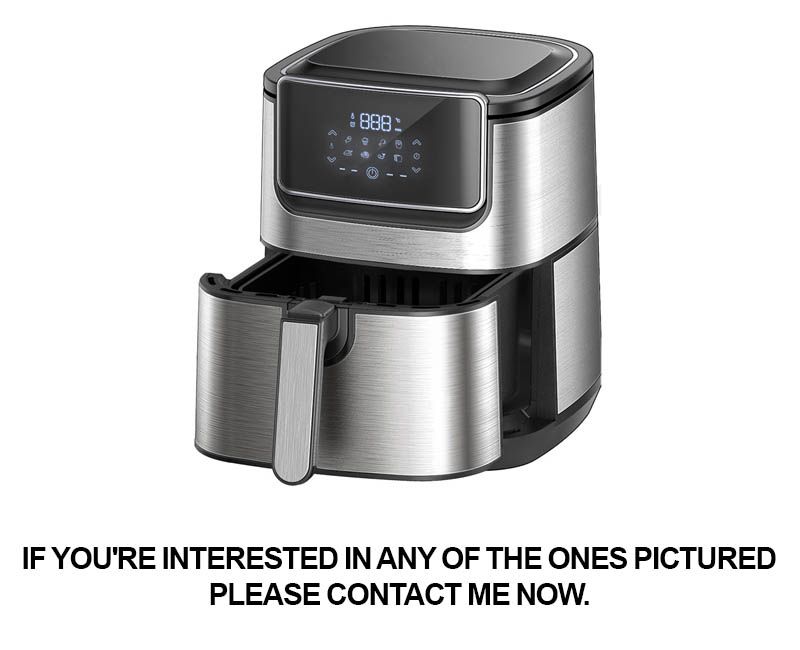
In the world of commercial kitchen equipment, the NSF certified commercial air fryer stands out as a beacon of innovation and reliability. Here are some of the key features that make these fryers a must-have for any culinary establishment.
Advanced Heat DistributionNSF certified commercial air fryers are designed with precision heat distribution in mind. The technology ensures that the air circulates evenly around the food, leading to consistent cooking results. This feature is particularly beneficial for larger batches, as it reduces the risk of unevenly cooked or raw sections within the fryer.
Large Capacity and VersatilityThese fryers come in various sizes, from compact models suitable for small kitchens to industrial-grade units capable of handling high-volume production. The versatility allows chefs to cook a wide range of foods, from crispy fries to succulent fried chicken, without the need for additional equipment.
Energy EfficiencyOne of the standout features of NSF certified air fryers is their energy efficiency. These fryers use up to 80% less oil than traditional deep fryers, which not only cuts down on operational costs but also contributes to a healthier cooking environment. The lower oil usage also means less waste and a reduced environmental footprint.
Easy-to-Use ControlsModern NSF certified commercial air fryers are equipped with intuitive controls that make them easy to operate. Digital temperature settings and timers allow for precise cooking, ensuring that food is cooked to perfection every time. Some models even come with programmable settings for favorite recipes, streamlining the cooking process.
Safety FeaturesSafety is a top priority in the design of NSF certified commercial air fryers. These units are built with features like cool-to-the-touch exteriors to prevent burns, overload protection to prevent damage from excessive heat, and automatic shut-offs to minimize the risk of accidents. These safety features give peace of mind to both operators and customers.
Quick and Easy CleaningCommercial kitchens are all about efficiency, and NSF certified air fryers make cleaning a breeze. The non-stick surfaces and removable parts allow for quick and thorough cleaning. This feature is particularly important in high-volume kitchens where downtime is a luxury.
Durable ConstructionBuilt to withstand the rigors of commercial use, these air fryers are constructed with high-quality materials. The robust design ensures that the fryer can handle heavy loads and frequent use without wearing down. This longevity translates to a lower cost of ownership over time.
Space-Saving DesignCommercial kitchens are often cramped, and space is at a premium. NSF certified air fryers are designed with space-saving features in mind. They are compact yet powerful, making them a great addition to kitchens where every square inch counts.
Enhanced Flavor and TextureThanks to the combination of even heat distribution and the absence of excessive oil, NSF certified commercial air fryers offer a healthier alternative without sacrificing taste or texture. Foods emerge from the fryer with a crispy outer layer and a moist, tender interior, similar to traditional fried foods but with a fraction of the fat.
Compliance with Health RegulationsIn the foodservice industry, compliance with health and safety standards is paramount. NSF certification ensures that these air fryers meet the strictest criteria for safety, sanitation, and performance, making them a wise choice for any establishment that values its reputation and the well-being of its customers.
In summary, the key features of an NSF certified commercial air fryer plant encompass not only advanced technology and efficiency but also a commitment to safety, health, and ease of use. These fryers are a game-changer for any kitchen looking to enhance its menu offerings while maintaining a clean, efficient, and cost-effective operation.

In recent years, the shift towards healthier eating habits has been undeniable, and the culinary world has responded with innovation. The rise of NSF certified commercial air fryer plants has emerged as a significant trend, offering a win-win scenario for both health and sustainability. Here’s how these advancements are reshaping our approach to cooking and dining.
Air fryers have long been a favorite in home kitchens for their ability to produce crispy, delicious results with minimal oil. Now, with the commercial version gaining traction, these appliances are not just a kitchen gadget but a vital tool for businesses committed to health and the environment.
One of the most compelling reasons to opt for an NSF certified commercial air fryer plant is the health benefits it offers. Traditional frying methods often lead to deep-frying, which can significantly increase the calorie and fat content of foods. However, air frying utilizes hot air to circulate around the food, reducing the need for oil by up to 80%. This dramatic decrease in oil not only slashes the calorie count but also minimizes the risk of heart disease and other health issues associated with excessive fat intake.
Moreover, the use of air fryers encourages the adoption of healthier cooking techniques. The hot air circulation creates a crispy outer layer while keeping the interior tender and juicy, similar to the texture of fried food. This method allows for the creation of a wide range of dishes, from crispy fries and wings to tender chicken and fish, all with a fraction of the guilt.
From an environmental standpoint, the impact of air fryer plants is equally profound. Traditional deep-fat fryers require a substantial amount of oil, which can be harmful to the environment if not managed properly. Oil spills can contaminate water sources, and the process of disposing of used oil can be complex and expensive. Air fryers, on the other hand, use significantly less oil, which means fewer oil changes and less waste.
The sustainability of air fryer plants also extends to their energy efficiency. These appliances are designed to use less energy than conventional fryers, contributing to lower carbon footprints. In a commercial setting, this not only saves on energy bills but also reduces the overall environmental impact of the operation.
Another critical aspect of sustainability is the longevity of the appliances themselves. NSF certified commercial air fryers are built to withstand the rigors of high-volume cooking, which means they can last for years, reducing the need for frequent replacements. This durability means fewer electronic waste and a more sustainable approach to kitchen equipment.
For consumers, the benefits are clear. They can enjoy their favorite fried foods with peace of mind, knowing that they are consuming them in a healthier, more sustainable way. This shift in perception is reshaping the foodservice industry, with more and more restaurants and foodservice operations embracing air fryer technology.
The educational aspect of NSF certified commercial air fryer plants cannot be overstated. They serve as a reminder of the power of innovation in making healthier choices more accessible and convenient. As more people become aware of the health and environmental implications of their food choices, the demand for these appliances is expected to grow.
The impact on sustainability extends beyond the kitchen, too. As the popularity of air fryer plants increases, there’s a ripple effect that could lead to changes in agricultural practices. With less demand for deep-fried foods, there may be a shift towards producing crops that are better suited for air frying, leading to more efficient use of resources.
In conclusion, the introduction of NSF certified commercial air fryer plants represents a significant step forward in both health and sustainability. By reducing oil usage, promoting healthier cooking methods, and contributing to a lower environmental footprint, these appliances are changing the landscape of the foodservice industry. As consumers continue to prioritize health and sustainability, the demand for these innovative solutions will likely only increase, creating a win-win scenario for everyone involved.
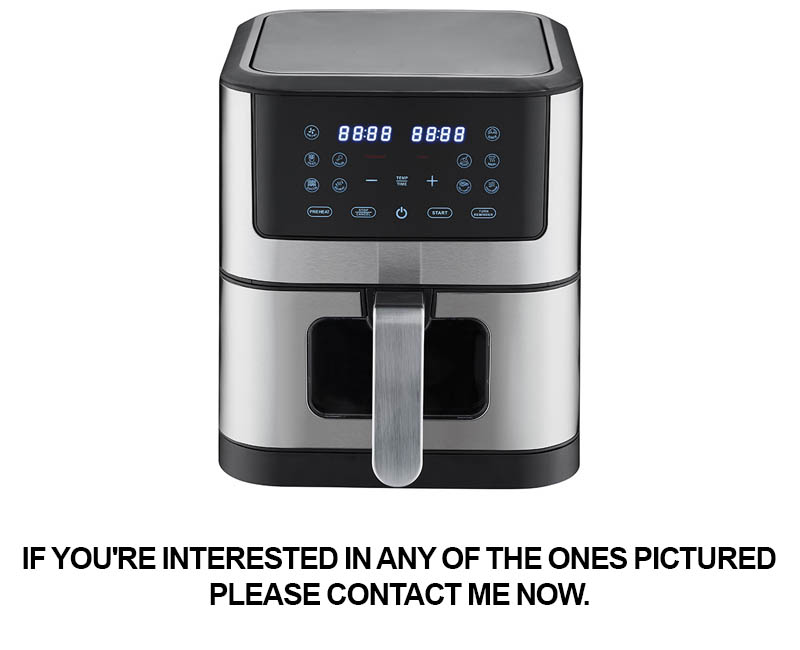
In recent years, there’s been a noticeable shift in consumer preferences, with a growing demand for eco-friendly cooking solutions. This trend is reshaping the market, influencing the development and popularity of various kitchen appliances. Here’s a closer look at some of the key market trends and consumer demands shaping this movement.
The surge in health consciousness has driven many consumers to seek out cooking methods that are not only nutritious but also environmentally friendly. This has led to a rise in the popularity of air fryers, which offer a healthier alternative to deep-frying. The convenience of these appliances, combined with their ability to reduce oil usage, has made them a favorite among health-conscious consumers.
There’s a strong inclination towards sustainability, with consumers increasingly looking for products that have a lower carbon footprint. This demand has spurred manufacturers to innovate and produce appliances that are energy-efficient and made from recyclable materials. Eco-friendly cookware and appliances are not just a trend; they’re becoming a staple in many kitchens.
Smart kitchen technology is another significant trend that’s closely tied to eco-friendliness. Smart appliances can be controlled remotely, allowing users to save energy by only heating up when necessary. This level of control and efficiency is resonating with consumers who are keen on reducing their energy consumption.
The demand for organic and locally sourced ingredients has also grown, reflecting a broader trend towards supporting local communities and reducing food miles. This preference has led to a market for appliances that can handle a variety of cooking styles, from slow cooking to air frying, all while maintaining the integrity of the ingredients.
In the wake of global events that have highlighted the importance of food security, there’s a renewed interest in self-sufficiency and home cooking. Consumers are seeking appliances that can help them prepare a wide range of dishes, from traditional to exotic, using the ingredients they have on hand. This shift has opened the door for innovative kitchen solutions that cater to diverse culinary needs.
The market is also witnessing a rise in demand for appliances that can be easily cleaned and maintained. With a focus on sustainability, consumers are looking for products that are durable and long-lasting, reducing the need for frequent replacements. This demand has spurred manufacturers to develop appliances with user-friendly designs and easy-to-access parts.
Another key trend is the integration of appliances with kitchen countertops and cabinetry. Consumers are seeking seamless, integrated kitchen designs that not only look stylish but also enhance functionality. This has led to the development of appliances that can be built into kitchen layouts, blending in with the overall aesthetic.
The demand for appliances that can help reduce food waste is also on the rise. From food storage solutions to innovative ways of cooking leftovers, consumers are looking for products that can help them minimize waste and make the most of their ingredients.
In conclusion, the market trends and consumer demands for eco-friendly cooking solutions are multifaceted. They range from a focus on health and sustainability to the integration of smart technology and a growing emphasis on durability and efficiency. As these trends continue to evolve, we can expect to see even more innovative products that cater to the environmentally conscious consumer.
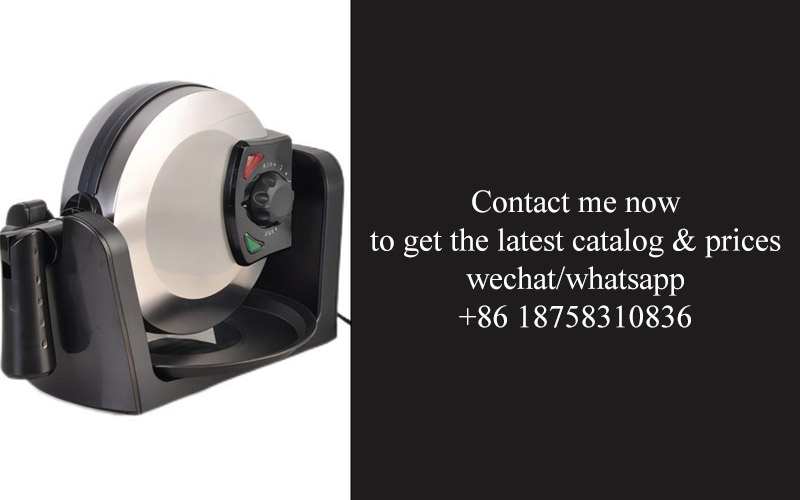
In the world of commercial kitchens, the adoption of NSF certified air fryer plants has become a testament to innovation and a commitment to quality. Let’s delve into a few case studies that showcase the successful implementations of these cutting-edge cooking solutions.
The first instance involves a bustling fast-food chain that sought to elevate its menu offerings while maintaining a health-conscious image. By replacing their traditional fryers with an NSF certified air fryer plant, they were able to reduce oil usage by 80% and cut down on waste. The result was a more sustainable kitchen that also pleased health-conscious customers, leading to increased sales and customer loyalty.
Another case study highlights a local restaurant that specializes in international cuisine. The owner was looking to offer a healthier alternative to deep-fried dishes without compromising on flavor. After investing in an NSF certified air fryer plant, the restaurant introduced a variety of crispy, flavorful items that were a hit with diners. The plant’s versatility allowed the restaurant to experiment with different ingredients and cooking methods, broadening their menu and attracting a wider audience.
A hotel’s executive chef was faced with the challenge of providing guests with a diverse range of dishes while adhering to stringent health and safety regulations. By integrating an NSF certified air fryer plant into their kitchen, the chef was able to create a variety of low-fat, high-flavor dishes. The plant’s ability to maintain consistent temperatures and cooking times ensured that each dish was perfectly cooked, every time. This not only improved the guest experience but also helped the hotel reduce their carbon footprint and save on energy costs.
A school cafeteria manager was looking for a way to serve healthier meals to students without sacrificing taste or convenience. The introduction of an NSF certified air fryer plant transformed the way meals were prepared. The plant’s ability to cook a variety of foods quickly and efficiently helped the cafeteria meet the demands of a busy lunch period. Additionally, the reduced oil content in the meals made them more appealing to students who were increasingly interested in making healthier choices.
A food truck operator was on the hunt for a cooking solution that was portable, efficient, and could be used for a wide range of dishes. After trying out several options, they settled on an NSF certified air fryer plant. The plant’s compact design and energy-saving capabilities made it an ideal choice for their mobile kitchen. The food truck operator was able to offer a variety of air-fried snacks and entrees that were both popular and profitable.
A healthcare facility was looking to improve the nutritional value of the meals served to patients. The decision to install an NSF certified air fryer plant was a strategic move that allowed the facility to offer a range of heart-healthy, low-fat options. The plant’s ability to provide consistent cooking results was crucial in ensuring that each meal met the facility’s high standards of quality and safety.
In each of these case studies, the NSF certified air fryer plant has proven to be a valuable asset. From reducing oil usage and waste to expanding menus and improving health outcomes, these plants have become a cornerstone in the commercial kitchen industry. As the demand for eco-friendly and health-conscious cooking solutions continues to grow, the success of these implementations serves as a powerful testament to the benefits of investing in an NSF certified air fryer plant.
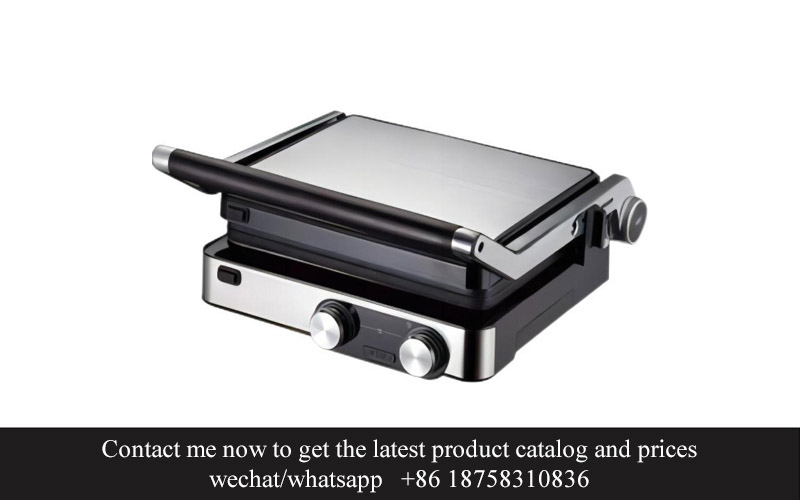
In recent years, the kitchen has witnessed a remarkable transformation, driven by innovations in technology that promise to revolutionize the way we cook. As we delve into the future, several groundbreaking advancements are poised to shape the culinary landscape. Here’s a glimpse into what we can anticipate:
Technology is pushing the boundaries of what’s possible in cooking. From smart appliances that learn your preferences to devices that can replicate the taste of traditional cooking methods, the future promises a blend of efficiency and convenience. Imagine a scenario where your oven not only preheats but also adjusts its cooking time based on the food’s response to heat.
Sustainability is no longer just a buzzword; it’s a core principle guiding innovation. Air fryers, for instance, are becoming more energy-efficient, reducing the carbon footprint associated with cooking. Companies are now exploring ways to integrate renewable energy sources directly into kitchen appliances, ensuring that your kitchen can be green without compromising on performance.
One of the most anticipated innovations is the integration of artificial intelligence (AI) in cooking appliances. Smart kitchen gadgets are not just a trend; they are becoming smarter, learning from user habits and preferences. Imagine a scenario where your refrigerator suggests recipes based on the ingredients you have and the meal plans you’ve entered, all while optimizing for nutritional balance and flavor profiles.
3D printing in food technology is another area that’s gaining momentum. It’s no longer just for plastics and metals; it’s being used to create custom food items with precise nutritional profiles. This technology has the potential to transform meal prep for individuals with specific dietary needs, offering a personalized touch to health and wellness.
The Internet of Things (IoT) is extending its reach into the kitchen, creating a connected ecosystem where appliances communicate with each other. A smart kitchen could one day alert you to the perfect cooking time for a dish, automatically adjusting your oven or stove settings, and even ordering more ingredients if it detects that you’re running low.
Energy efficiency is a driving force behind the next wave of innovations. As environmental concerns grow, manufacturers are focusing on appliances that use less energy. We’re seeing advancements in induction cooking, which not only heats food faster but also uses less energy compared to traditional electric ranges.
Another trend is the move towards healthier cooking options. Air fryers, for example, are being designed to offer more healthful cooking methods, like lower oil usage. As consumers become more health-conscious, we’ll likely see a surge in appliances that can provide low-fat, high-flavor cooking experiences.
The integration of biotechnology into kitchen appliances is also on the horizon. Imagine a fridge that not only keeps food fresh but also enhances its nutritional value. Bioluminescent plants and genetically modified organisms could potentially be used to extend the shelf life of produce and meats, reducing food waste.
Sustainability isn’t just about reducing energy consumption; it’s also about the materials used in appliances. We’re seeing a shift towards biodegradable and recycled materials, reducing the environmental impact of kitchenware. As consumers demand more eco-friendly options, manufacturers are responding with innovative materials that are both sustainable and functional.
Lastly, the future of cooking is interactive. With virtual reality (VR) and augmented reality (AR), cooking could become a collaborative, engaging experience. Imagine using VR to create a meal with a friend who’s miles away, or AR to overlay cooking instructions and tips onto your kitchen counter.
These innovations are not just hypothetical; they are already being developed and tested in labs and kitchens around the world. As we move forward, we can expect a culinary landscape that is more efficient, personalized, and environmentally conscious. The future of cooking is not just about new appliances; it’s about a new way of experiencing food and the joy of creating culinary masterpieces.

In recent years, the adoption of NSF certified commercial air fryers has become a wise investment for businesses looking to enhance their financial outlook. These fryers, known for their health benefits and energy efficiency, offer a range of financial advantages that can significantly impact a company’s bottom line. Here’s how they contribute to a win-win scenario for both businesses and consumers:
Enhanced Energy Efficiency Reduces Operating Costs: NSF certified commercial air fryers use up to 80% less oil than traditional deep fryers, which not only improves the health profile of the food but also slashes energy consumption. This reduction in energy use can lead to substantial savings on utility bills over time, providing a clear financial incentive for businesses to invest in these eco-friendly appliances.
Increased Productivity and Streamlined Workflow: These air fryers often come with features like programmable settings and rapid heat-up times, which allow for faster cooking cycles and increased output. This efficiency translates to higher productivity and the ability to serve more customers without a proportional increase in labor costs.
Improved Health Profile Attracts Health-Conscious Customers: The health benefits of air-fried foods, which are lower in fat and calories compared to their fried counterparts, attract a growing number of consumers who are mindful of their dietary choices. This can lead to increased sales and customer loyalty, as patrons seek out establishments that offer healthier options.
Reduced Waste and Lower Inventory Costs: The precise control over cooking temperatures and times that air fryers provide can minimize food waste. By cooking food more evenly and at the perfect temperature, these fryers ensure that food is cooked to perfection, reducing the risk of overcooking and waste. Additionally, with less oil required, businesses can also reduce their inventory costs for cooking oil.
Longevity and Reliability of NSF Certification: Products with NSF certification are held to rigorous safety and quality standards, ensuring they are built to last. This reliability means fewer repairs and maintenance costs over the life of the appliance, providing a solid return on investment.
Compliance with Safety and Quality Regulations: For restaurants and commercial kitchens, compliance with health codes is paramount. Investing in NSF certified air fryers ensures that a business meets all the necessary safety standards, which can prevent fines and legal issues down the line.
Brand Differentiation and Marketing Opportunities: With health and sustainability being key concerns for consumers, having NSF certified air fryers can differentiate a brand from competitors. This certification can be a strong selling point in marketing materials, attracting customers who are looking for responsible and health-focused dining options.
Potential for Increased Menu Variety: The versatility of air fryers allows for a wider range of menu options without the need for additional frying equipment. This can open up new revenue streams as businesses explore new, popular cooking methods like air-frying for their offerings.
Positive Environmental Impact: The environmental benefits of using air fryers, such as reduced oil usage and energy consumption, contribute to a company’s corporate social responsibility (CSR) efforts. This can enhance the brand’s image and appeal to environmentally conscious consumers.
Long-Term Cost Savings from Extended Product Life: Because NSF certified air fryers are built to withstand heavy commercial use, they often have a longer lifespan than their non-certified counterparts. This longevity can lead to fewer replacements and ongoing savings for businesses.
By considering these financial benefits, it becomes evident that investing in an NSF certified commercial air fryer is not just a strategic move for health and sustainability, but also a savvy business decision that can yield significant financial returns over time.

Understanding the specifications and capabilities of an NSF certified commercial air fryer is crucial for any business looking to invest in this innovative cooking technology. These fryers are not just kitchen appliances; they are game-changers that offer a myriad of benefits that can significantly impact your business operations and customer satisfaction. Here’s a breakdown of some key features that make these air fryers stand out.
Advanced Heat DistributionNSF certified commercial air fryers are designed with advanced heat distribution systems that ensure uniform cooking throughout the basket. This feature reduces the risk of undercooked or overcooked food, providing consistency in the final product.
Large Capacity and VersatilityThe capacity of these fryers can range from 4 to 20 quarts or more, making them suitable for various types of businesses, from small cafes to busy restaurants. Their versatility allows for frying a wide array of foods, from crispy French fries to deep-fried chicken, all while using less oil.
Energy EfficiencyOne of the standout features of NSF certified air fryers is their energy efficiency. These units use up to 80% less oil than traditional fryers, which not only cuts down on costs but also reduces the environmental impact. The advanced technology allows for higher temperatures with less energy, resulting in shorter cooking times.
Easy CleaningMaintaining a commercial kitchen is a task that requires constant attention, and NSF certified air fryers make it easier. The non-stick surfaces and removable parts simplify the cleaning process, saving time and effort for kitchen staff.
Safety FeaturesSafety is paramount in commercial kitchens, and NSF certified air fryers come equipped with a range of safety features. These include automatic shut-off functions, cool-touch exteriors to prevent burns, and safety locks to prevent accidental operation.
Health BenefitsThe health-conscious consumer is always on the lookout for options that are lower in fat and calories. NSF certified air fryers offer a healthier alternative to deep-frying, allowing businesses to cater to this growing demand. The reduced oil usage means that the final product is less greasy and potentially lower in calories.
Consistent PerformanceWhether you’re running a busy kitchen or a high-end restaurant, consistency is key. NSF certified air fryers deliver consistent performance, day in and day out, ensuring that your customers receive the same quality of food every time.
Portability and Space-Saving DesignIn today’s commercial kitchens, space is often at a premium. Many NSF certified air fryers are designed with portability and space-saving in mind, allowing for flexibility in kitchen layouts and the ability to move the fryer as needed.
User-Friendly ControlsModern NSF certified air fryers come with intuitive controls that make them easy to use. Digital displays, programmable settings, and user-friendly interfaces ensure that kitchen staff can operate the fryer without extensive training.
Extended Warranty and SupportWhen investing in a piece of commercial kitchen equipment, knowing that you have reliable support is invaluable. NSF certified air fryers often come with extended warranties and excellent customer service, providing peace of mind for long-term use.
Transitioning to an NSF certified commercial air fryer can have a profound impact on health and sustainability, creating a win-win scenario for businesses and consumers alike.
The shift towards healthier eating habits has been a significant trend in recent years, and air fryers have emerged as a popular choice for those looking to reduce the fat content in their meals. By using less oil, these fryers not only contribute to a healthier diet but also reduce the environmental footprint of foodservice operations. This change can lead to increased customer loyalty and a positive brand image for businesses that prioritize health and sustainability.
Moreover, the sustainability aspect of air fryers is not just about the food they produce; it’s also about the equipment itself. Energy-efficient models not only save on utility bills but also help businesses reduce their carbon emissions. This commitment to sustainability can appeal to environmentally conscious consumers and set businesses apart from competitors.
For consumers, the health benefits of air fryers are clear. The ability to enjoy deep-fried foods with significantly less oil translates to fewer calories and a lower risk of heart disease and obesity. This shift towards healthier cooking methods aligns with the broader public health initiatives and can encourage a more proactive approach to diet and nutrition.
When it comes to market trends and consumer demand, eco-friendly cooking solutions are in high demand. Consumers are increasingly looking for food options that are not only healthy but also environmentally responsible. This demand has spurred the development of more advanced and efficient cooking technologies, with air fryers at the forefront.
Several case studies have demonstrated the successful implementation of NSF certified air fryer plants. One such example is a local fast-food chain that switched from traditional fryers to air fryers. Not only did this change result in a reduction in oil usage, but it also improved the taste and texture of their fries, leading to increased customer satisfaction and sales.
In another instance, a gourmet restaurant replaced its deep-frying equipment with an NSF certified air fryer. The chef was impressed with the ability to achieve the same golden-brown finish as traditional frying while using a fraction of the oil. This allowed the restaurant to offer healthier options without compromising on flavor, and it was well-received by their health-conscious clientele.
As for what to expect in the near future, technology continues to advance at a rapid pace. Innovations in the air fryer industry may include even greater energy efficiency, enhanced food texture, and the integration of smart technology for more precise cooking control.
The financial benefits of investing in an NSF certified commercial air fryer are numerous. For one, the reduction in oil costs can be significant, especially for businesses that fry large volumes of food. The energy savings from the more efficient operation can also lead to lower utility bills.
Furthermore, the healthier image associated with air fryers can attract more customers who are looking for healthier dining options. This can lead to increased sales and potentially higher profit margins. The initial investment in a high-quality air fryer may be substantial, but the long-term savings and increased customer base can make it a worthwhile investment.
When choosing the right NSF certified commercial air fryer plant for your business, consider several factors. Look for a model that fits your specific needs in terms of capacity and versatility. Check for the latest safety features and energy-efficient technologies. Additionally, consider the brand reputation and customer service support, as these can be crucial in the long run.
Investing in an NSF certified commercial air fryer plant is not just about adopting new technology; it’s about embracing a healthier, more sustainable future for your business. With the right choice, you can enjoy the financial and health benefits that come with this innovative cooking solution.